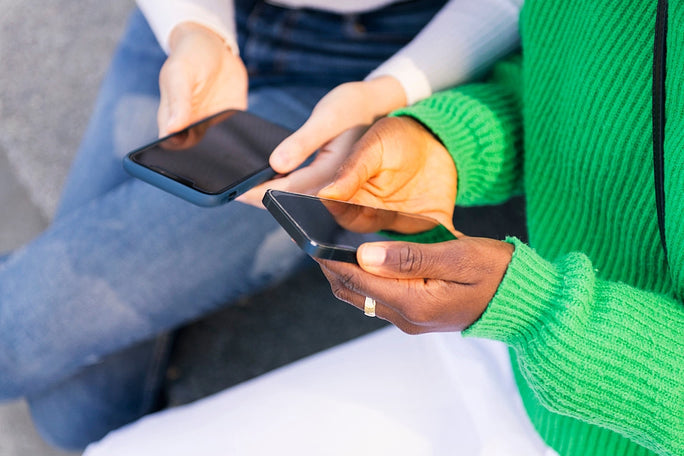5 Easy Ways You Can Live A More Sustainable Life
Recycling is great. We love it. We do it. You should do it too. That being said, sometimes it feels like just recycling isn’t doing enough to help keep our planet healthy. It can be hard to live a totally sustainable life, and no one is expecting everyone to live waste-free. That’s no reason to just say “screw it” and not do anything to help. Sustainability isn't some ethereal idea, there's simple things that we can all do to make a difference.
Take buying a refurbished phone, for example. When you buy a refurbished phone. You’re cutting the environmental impact of the device in half. Manufacturers don’t have to source raw materials or spend energy creating a new phone, so the carbon footprint is severely reduced. In case it wasn’t clear...this is a good thing!
Here are five ways (other than buying a Frank phone) that you can live a more sustainable life.
1) Repair things as much as you can.
It’s so easy to just say “well that’s broken, how soon can a new one get here?” when something breaks. While that may be more convenient, we really need to change our mindset. Greenpeace suggests we change our first response from “where can I get a new one?” to “how can I fix this?” Is the rip in that shirt really irreparable, or can you hem that up? Does the scratch on your favourite travel mug affect the functionality of it, or are you just looking for an excuse to buy a new one?
And listen, if you do break something and you can’t repair it (or you just don’t want to), it’s not like you’re a bad person. But you’d be surprised how often buying a new thing after the old one “breaks” is just a reflex vs. an actual need.
2) Upcycle the things you can’t repair.
The worst has happened. Your favourite mug has fallen off the table and a big chunk has been taken out. Obviously, this is not a fixable problem (unless you’re a master of pottery in which case, this may not be a great example for you). Your first instinct would be to throw the shattered mug away, but that would add waste to landfills which isn’t ideal. Instead, why not create a cute mug planter?
Upcycling means less waste in landfills, and frankly less money spent by you. Time to get crafty, friends.

3) Invest in reusable items.
It may seem a bit pricey to drop $25 to $40 on a reusable water bottle, or $5 on reusable grocery totes, but the price is absolutely worth it. Say you spend $3 a day on a single-use water bottle at lunch, that’s over $1,000 a YEAR on plastic bottles, not to mention 365 plastic bottles that will end up in landfills. The investment on reusable items like water bottles, grocery bags, metal straws, glass food containers, and more can help save you money and help save the planet. That, good friends, is what we in the business call a win-win situation.
4) Borrow things from friends or make trades.
Do you remember when you were a kid and you’d trade lunches at school? Or you’d trade Pokémon cards if you had doubles? Somewhere along the way as we grew up, we stopped trading and borrowing things. BRING 👏 THAT👏 BACK👏. If you need an outfit for a one-night engagement, you need a drill to finish an upcycling project, etc., check in with your friends first! They may have just what you need, and they’ll likely let you borrow it for free.
Consider setting up quarterly trading sessions with your friends, too! At the beginning of every season, each of you can gather up a bunch of things you don’t want or need anymore and start making some serious trades. Those jeans for this hand mixer. That wall-hanging for this vase. You’ll end up with a whole new collection of things without having to spend a penny.
5) Take a minute to think.
It sounds so silly, but just...take a breath and think about what you’re about to do or buy. Do you really need it? Could you buy this local? Is it really garbage or is there another use for it? So much of sustainability is just being aware of our actions. No one is asking us to be perfect, we all just need to do our best and there are small ways you can help reduce your environmental impact.
Ya dig?



